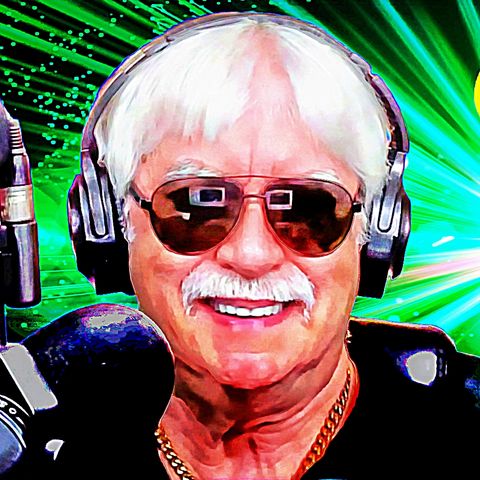XZRS: Hon. Paul Hellyer - ACE - Light at the End of the Tunnel

Iscriviti gratuitamente
Ascolta questo episodio e molti altri. Goditi i migliori podcast su Spreaker!
Scarica e ascolta ovunque
Scarica i tuoi episodi preferiti e goditi l'ascolto, ovunque tu sia! Iscriviti o accedi ora per ascoltare offline.
Descrizione
On 3 June 1967, Hellyer flew in by helicopter to officially inaugurate an Unidentified flying object landing pad in St. Paul, Alberta. The town had built the landing pad as...
mostra di piùThroughout his life, Hellyer has been opposed to the weaponization of space. He supports the Space Preservation Treaty to ban space weapons.
In early September 2005, Hellyer made international headlines by publicly announcing that he believed some UFOs were of extraterrestrial origin. On 25 September 2005, he was an invited speaker at an exopolitics conference in Toronto, where he told the audience that he had seen a UFO one night with his late wife and some friends. He said that though he discounted the experience at the time, he had kept an open mind to it. He said that he started taking the issue much more seriously after watching ABC News' "Peter Jennings Reports UFOs: Seeing is Believing" special in February 2005.
Watching Jennings' report prompted Hellyer to finally read U.S. Army Lt. Colonel Philip J. Corso's book The Day After Roswell about the Roswell crash Incident which had been sitting on his shelf for some time. Hellyer told the Toronto audience that he later spoke to a retired Air Force General who confirmed the accuracy of the information in the book.
Hellyer told the audience that in December 2004, he had enjoyed reading and had endorsed a book by Alfred Webre titled: Exopolitics - Politics, Government and Law in the Universe. He ended his 30 minute historical talk with a standing ovation by stating: "To turn us in the direction of re-unification with the rest of creation the author is proposing a “Decade of Contact” – an “era of openness, public hearings, publicly funded research, and education about extraterrestrial reality”.
In 2007, the Ottawa Citizen reported that Hellyer is demanding that world governments disclose alien technology that could be used to solve the problem of climate change. "I would like to see what (alien) technology there might be that could eliminate the burning of fossil fuels within a generation ... that could be a way to save our planet," Hellyer told the paper. He also said that "We need to persuade governments to come clean on what they know. Some of us suspect they know quite a lot, and it might be enough to save our planet if applied quickly enough,"
______________________________________________
Paull Hellyer holds one of the longest and most varied political career in Canada's history. He was first elected as a Liberal in 1949 federal election in the district of Davenport, he was the youngest person ever elected to that point in the Canadian House of Commons. He served a brief stint as Parliamentary Assistant to the Minister of National Defence, and made a good impression. He was then named Associate Minister of National Defence in the cabinet of Prime Minister Louis Saint-Laurent. He lost his seat when the Saint-Laurent government lost the 1957 election a few months later.
Hellyer returned to parliament in a 1958 by-election in the neighboring district of Trinity, and became an effective opposition critic of the John Diefenbaker's Progressive Conservative government.
When the Liberals returned to power in the 1963 election, Hellyer became Minister of National Defence in the cabinet of Lester B. Pearson. As Minister of Defence, he oversaw the controversial integration and unification of the Royal Canadian Navy, Canadian Army, the and the Royal Canadian Air Force into a single organization, the Canadian Forces.
Hellyer contested the 1968 Liberal leadership convention, placing second on the first ballot, but slipping to third on the second and third ballots, and withdrawing to support Robert Winters on the fourth ballot, in which Pierre Trudeau won the leadership. He then served as Trudeau's Transport Minister, and was Senior Minister in the Cabinet, a position similar to the current position of Deputy Prime Minister.
Informazioni
| Autore | The 'X' Zone Broadcast Network |
| Organizzazione | The 'X' Zone Broadcast Network |
| Sito | - |
| Tag |
Copyright 2024 - Spreaker Inc. an iHeartMedia Company
